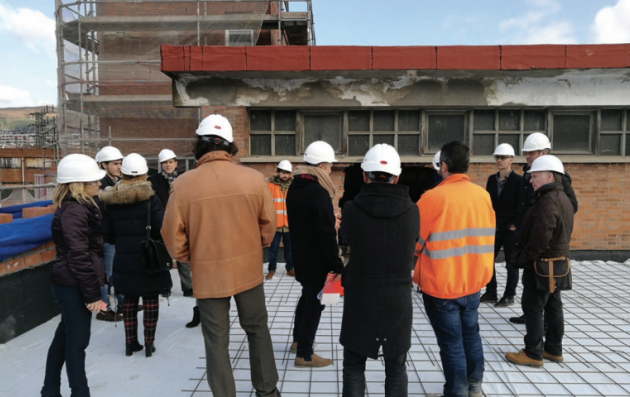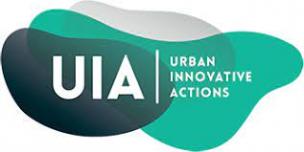Date of label : 14/05/2021
-
Bilbao , Spain
-
Size of city : 345.821 inhabitants
Previously transferred

Summary
The project seeks to increase the competitiveness of advanced services sector of Bilbao (Knowledge intense Business Services – KIBS), preparing current or future workers of the KIBS sector, to acquire the needed skills, to supply digital transformation demands. Bilbao is leading a strategic alliance between businesses and universities, local service providers and entrepreneurs, to shape a collaborative pilot ecosystem based on innovative pillars and hosted in a tailor made space for experimentation and incubation of new services. New education programs for university students, entrepreneurs and professionals addressing the new challenges of the industry 4.0 and digital economy will be tested, while networking actions among the main stakeholders, supported by tailored IT tools, will ensure a good match between demand and supply. New business models will be prototyped to support specialised start-ups that will benefit from a Minimum Viable Product (MVP) test Fab Lab for the market validation of new products/services.
At the end of the project, KIBS providers from Bilbao will have access to AS-FABRIK, the “factory for the creation of advanced services for industry”, gathering in a physical space an integrated kit of tools to shape new products and services for the new industry needs, and reinforce their competitiveness. This new model will lead to create a new generation of young and advanced service providers able to supply the challenging digital transformation demands.
The innovative solution
For Bilbao economic renewal is of paramount importance. The city is recovering from the global financial crisis, and despite having an unemployment rate significantly lower than the Spanish average, numbers are still high, and the city now faces the challenge of reinforcing its knowledge-based economy. The AS-FABRIK project is a coin with two sides: on the one side, it promotes “smart specialisation”, aiming to make manufacturing –a traditionally strong sector in the city- and related knowledge intensive business services (KIBS) services more competitive. On the other side, it is an instrument to improve the spatial conditions of the local economy, through the regeneration of the Zorrotzaurre area, a former industrial zone that will be turned into a knowledge-based new part of the city.
City government is a key player when it comes to the creation of favourable spatial conditions in which the local economy can flourish; Bilbao has a key role to play on the labour market, to improve the match between supply and demand, and in retraining the workforce; Also, Bilbao can pursue smart specialisation policies: in close collaboration with local stakeholders, promoting specific promising fields of economic development, in alignment with other policy levels, the private sector and knowledge institutes, which helps to guide investments into the most productive direction.
A collaborative and participative work
The main objective of the project will be possible thanks to the design, development and validation of a demonstrative model of a “Factory for the creation of advanced services for the industry” (AS-FABRK), based on a public-private collaborative process that will allow the achievement of the following specific objectives: to identify the mind-term, needs of the manufacturing industry regarding Industry 4.0 concept. Through Research Center and Public Agency; to carry out different interdisciplinary programmes for students, entrepreneurs and professionals so they can acquire the necessary skills to answer to the industry demands. Through University; to build a collaborative working methodology to match the education and expertise needs from the industry with the service providers (individually or in cooperation). Through University and Research Center; to create more and more specialised jobs in Bilbao as a result of the launching of new start-ups and new services. Through Business Support Center and Private Companies
The organisational structure of the Consortium comprises the following Consortium Bodies: the project coordination was done by the MUA who designated project coordinator; the Steering Committee has been responsible for the “major decisions” affecting the implementation and success of the project; the Technical Committee has been in charge of supervising the implementation of the work program and is for taking all decisions related to the operational management.
The impact and results
The project has contributed to the development of the advanced services sector of Bilbao in several ways. First, +70 local KIBS have been involved in the definition of Bilbao’s advanced services roadmap, co-creating strategic opportunity spaces to be exploited. From such opportunity spaces, 32 collaborations between SMEs-startups-entrepreneurs were stablished, based on the Partnership Brokering mentoring process, to develop and commercialise new technological services 4.0. Also 36 technological services 4.0 ventures were launched, and 12 of them finally consolidated their services in the market with the support of the Startup Boosting mentoring process. Beyond those numbers, +500 professionals were trained in data cycle technologies (embedded systems, IoT, data science, HMIs) as well as in digital business transformation drivers (e.g. smartisation, servitisation), thus significantly increasing their competences to foster new technological services 4.0 opportunity spaces, collaborations and ventures in the near future.
Why this good practices should be transferred to other cities?
AS-Fabrik has achieved a very significant success in transforming Bilbao. This has been possible due to three essential reasons: (1) Cities can leverage the smart specialisation strategy of their regions, (2) Cities can have an active role in the manufacturing sector, and (3) Cities must create landmarks of their transformation that generate a tangible asset in which to leverage a city-wide transformative process. Thanks to the URBACT project In Focus, Bilbao created a methodology to create its own smart specialisation strategy at a city level aligned with that of our region. One of the Basque Country’s strategic economic sectors is Advanced Manufacturing, and AS-Fabrik is the materialisation of that. –AS-Fabrik postulates a new way of supporting manufacturing industry from an urban perspective, and brings back many industrial concepts to the urban environment. Postindustrial cities are widespread through Europe. During their respective de-industrialisation phases, many cities have expelled the factories from their administrative boundaries, and have turned their backs on the manufacturing sector. Bilbao followed a similar path, but has been working for several years in bringing back the industry to the city, not by bringing back the factories themselves, but rather by grouping training and research; creating a network hub where different companies can collaborate in order to access new markets or create strategic partnerships; and finally creating a startup ecosystem.


